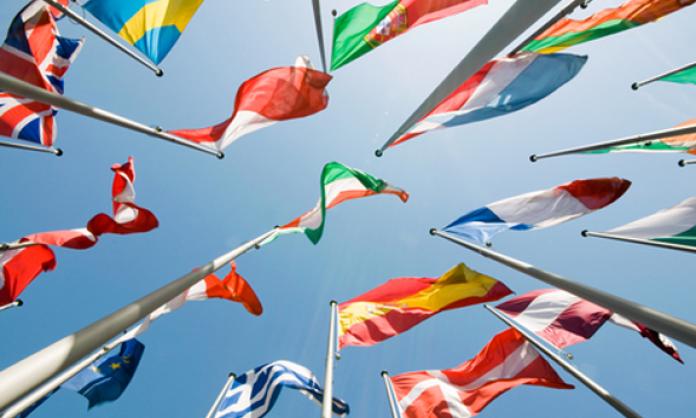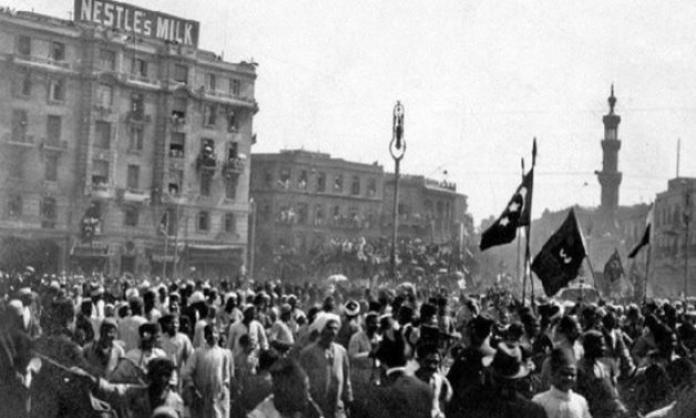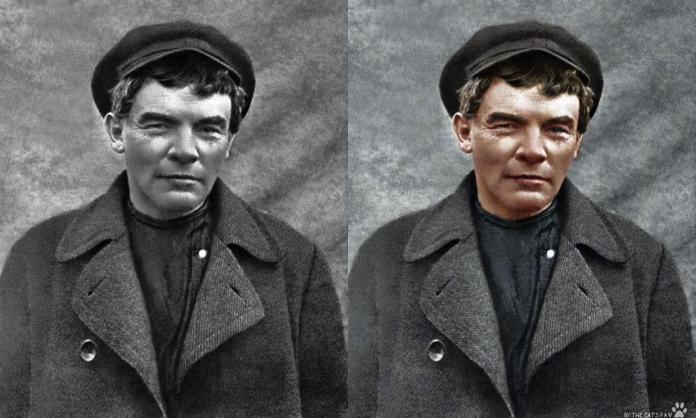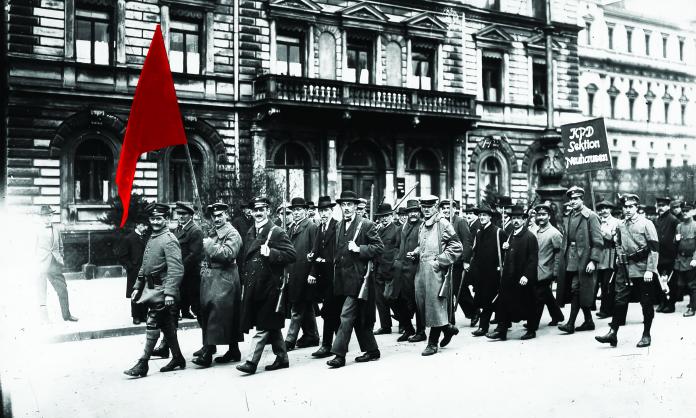It is rare to meet anyone whose world view is not framed by nationalism in one way or another. This is hardly surprising. The world is constructed on national lines: nation states, national languages, national education systems and national laws.
We have national parliaments and therefore national political parties, national industries and therefore national unions – the Maritime Union of Australia, the Australian Workers’ Union, the National Union of Workers.
And from a very early age, we are taught about our shared national culture and encouraged to embrace “national identity”. We reflexively support “our” country, “our” military, “our” national sporting teams. And when an Australian does well on the world stage, there often is a sense of national excitement. Take the buzz around NRL player Jarryd Hayne playing for the San Francisco 49ers, or when Nicole Kidman (“Our Nic”) first made it big in Hollywood.
Exactly what it is to “be Australian”, however, is exceedingly hard to pin down.
The “fair go” and “mateship” are the backbones, we’re told, of what it means to be Australian. Also important is the Aussie larrikin spirit – if you read the Northern Territory News, you understand that this is expressed in getting drunk and setting off a firecracker in your pants or taunting some native wildlife until it finally bites you in the groin.
The problem with the workers’ movement and the left pushing their own version of nationalism is that it still has the corrosive effect of undermining class solidarity and helping to bind us more closely to our own ruling class.
Yet we encounter two serious problems as soon as we interrogate any of the things that allegedly are quintessentially “Australian”. First is that they are not unique to Australia at all. People in every country believe in fairness and value friendship. Every country has its outlandish and irreverent characters.
Second is that the meaning of the concepts is contested. For example, a minimum wage hospitality worker might have a radically different idea of what a “fair go” is compared to Gina Rinehart or James Packer. In fact, Rinehart and Packer (and the heads of all the major corporations) are more likely to share the views of other rich people, be they Indian, Egyptian, Colombian or Greek. Similarly, working people often will find that their views accord with those of other workers of different nationalities around the world.
Nationalism is not a coherent argument. Nor could it be, because, while the sentiment is in part a reflection of how the world is structured, its purpose is to obscure, rather than clarify, the nature of society.
Today, the strength of the ideology of nationalism under capitalism is not surprising. British Marxist Chris Harman situated it alongside a range of other taken-for-granted capitalist ideas:
“It is part of the reflection in people’s consciousnesses of the experience of living in a capitalist world. Just as living under capitalism makes the great mass of people take for granted that commodity production, alienated wage labour and competition are more common than co-operation, so it makes them take for granted the necessity of the nation state.
“And nationalist consciousness makes sense so long as they do not challenge the system as a whole – the individual worker knows he or she has to belong to a state to be allowed to work and live freely, and to apply for welfare benefits when necessary. Marx made the point nearly 150 years ago that the ruling ideas are always the ideas of the ruling class. And one of those ideas is the idea of the nation as a ‘natural unit’ for grouping together a section of humanity into its ‘own’ cordoned off part of the planet.”
There clearly are competing versions of Australian nationalism. For sections of the conservative right, to be Australian is to be, well, British actually; for republicans, it is something different. For progressives, to be Australian is to welcome refugees, because this after all is a country of migrants; for reactionaries, asylum seekers are a threat to the nation. Both of the major parties frame every anti-working class policy as “good for Australia”, while left-leaning people want to be proud to be Australian by resisting attacks on the poor and opposing racism.
The problem with the workers’ movement and the left pushing their own version of nationalism, however, is that it still has the corrosive effect of undermining class solidarity and helping to bind us more closely to our own ruling class.
The case for internationalism
In the Communist Manifesto, Marx and Engels recognised that the working class is “itself national”. But they urged that “working men have no country”. This was a call for internationalism – for overcoming division and uniting working people across borders. No one would suggest that this is an easy task. But all workers have an interest in adopting this spirit, rather than succumbing to nationalist arguments.
Capitalism is based on competition – between capitalists in pursuit of profits, between workers as we compete for jobs, university places and so on, and between the states seeking to extend the reach and power of the “national” capitalist class.
National competitiveness (of Australian workers against all comers) is constantly invoked by capitalists, economists and MPs to argue that workers should accept lower wages and worse conditions. But the same is true in other countries. Across the world, the polarisation of wealth is reaching new extremes. As the rich of every country get richer, they are forcing a race to the bottom on the rest of us. Everywhere, workers are being told to expect less, not more, to work harder and longer with fewer social protections and a continually eroded welfare state.
The super-wealthy, despite telling the rest of us to be patriotic, have constructed their own shared way of life that excludes workers. Those at the top – whether Chinese bureaucrats, US or Australian capitalists, top government officials from poor African states or Middle Eastern oil sheiks – stay in the same international hotels, enjoy meals from the same top restaurants, live in similarly fortified palatial estates and send their children to elite private schools where they mix with others of the same class background.
At the same time, workers around the world today more than ever share similar conditions of life: tempos of work, patterns of consumption, forms of recreation and so on, increasingly cut across the old national barriers. As Harman puts it so succinctly, “Languages remain different, but what they say is increasingly the same”. Why? Because societies are moulded by the same world system.
Internationalism is a gesture toward overcoming this reality of a world polarised between rich and poor, exploiter and exploited. But internationalism isn’t just a moral position. When industrial struggle and political confidence increase, so too does the possibility of international solidarity between the workers of different countries.
In the 1970s Australia’s maritime unions took regular industrial action against ships that had picked up cargo from the racist apartheid regime in South Africa. When Australian wharfies were locked out by Patrick Stevedoring in an attempt to break the MUA in 1998, workers in the US, South Africa and Italy took action in solidarity.
More dramatically, major struggles between workers and bosses in one country often propel and combine with struggles in other countries. This is true of revolutionary struggle – which can rapidly spread across borders, as was the case at the end of the First World War in Europe or the Arab revolutions in 2011. It is also true of large radicalisations, such as those in the late 1960s and early 1970s.
During such events, people often are still not purely internationalist in outlook. In more mundane times, people’s consciousness is very mixed. Eric Hobsbawm’s book Nations and Nationalism Since 1780 draws a striking analogy with the contradictory mixture of nationalist and class-based ideas that working class people have most of the time:
“Men and women did not choose collective identification as they chose shoes, knowing that one could only put on one pair at a time. They had, and still have, several attachments and loyalties simultaneously, including nationality, and are simultaneously concerned with various aspects of life, any one of which may at any moment in time be foremost in their minds, as occasion suggests.
“For long periods of time these different attachments would not make incompatible demands on a person … It was only when one of these loyalties conflicted directly with another that problems of choosing between them arose.”
Take the example of Lance, who lost his job at Four’N Twenty some years ago. “The immigration department brought in the Yugoslavs”, he says, sitting at a pub in Melbourne’s inner north. “I wanted a full time job. I said ‘This is my home, can I have a full time job?’ They said no. I’ve been out of full time work for more than 15 years. Where do I go? What do I do? I don’t know, I just don’t know. I’d like to do some training, but there not much chance of it … Forget the refugees – what about us unemployed people?”
Yet it’s not difficult to scratch through and find a competing thought, which offers a path towards solidarity with other workers, regardless of their origin: “We’re not Murdoch, we’re not the Packers, we’re not Rinehart, we’re not the Hancocks. We’re not from money – we’re kicking from the bottom end of the barrel. And what’s at the bottom end of the barrel? Dregs; leftovers. The shit that runs the country doesn’t look after us”.
All Lance wants is a job. He’s fit to work even if he’s getting on in years. He’s right to be pissed off. The two competing thoughts stem from one grievance: that fact that he has been left to rot.
The question is which explanation comes to the surface at which time? And in a world full of legitimate grievances, how are they not simply expressed, but channelled? The answer to that depends on the strengths and weaknesses of the workers’ movement and the left and the confidence of the right.
Today, many are choosing a more patriotic nationalism. In its far-right forms, it is on the rise in many parts of the world as economic crisis persists, unemployment stays high and income inequality grows. But if we want to overcome the real divisions between rich and poor, we also need to break down the invented divisions between peoples across the globe. We need to resurrect Marx and Engels’ call to arms:
“Workers of all countries unite! You have nothing to lose but your chains!”










